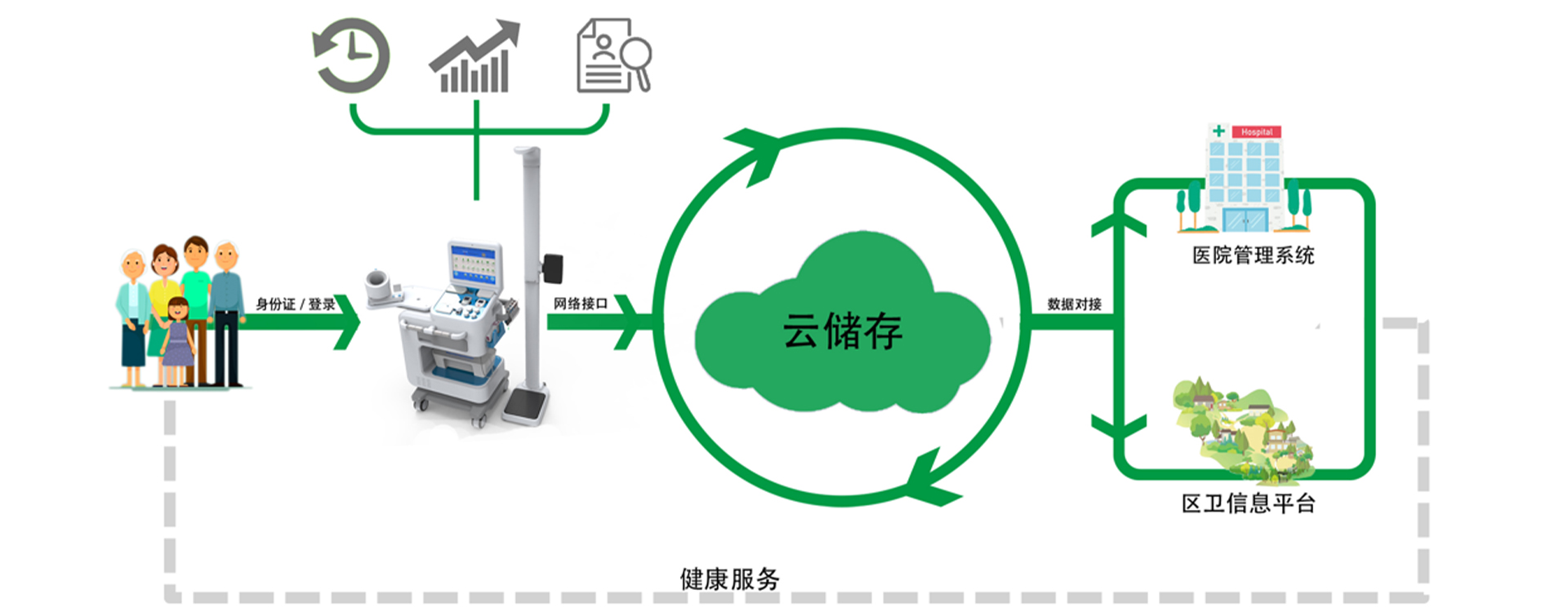Smart health management is a kind of technology based on the deep integration of information technology and health and medical fields, aiming to improve people's health and quality of life.It is based on technologies such as intelligence, big data and the Internet of Things, and provides personalized health management services and risk warnings by collecting, analyzing, processing and sharing health information of individuals and groups to help people better manage themselves. health, prevention and control of the occurrence and development of diseases.

1. Health information collection: Collect personal health information, such as heart rate, blood pressure, blood sugar, sleep quality, etc., through wearable devices, smart medical devices, mobile applications, etc.
2. Data processing and analysis: Process and analyze the collected health data, identify abnormal situations and risk factors, and generate health reports and early warning information.
3. Personalized health management services: Provide personalized health management suggestions and services based on individual health status and needs, such as dietary guidance, exercise plans, medication, etc.
4. Health file management and sharing: Establish personal health files, record historical health data and diagnosis results, realize information sharing between family doctors, hospitals and patients, and improve the quality and efficiency of medical services.
5. Risk warning and prevention: Through the monitoring and analysis of health data, potential health risks and disease signs can be discovered in a timely manner, and early warning and preventive measures can be taken in advance to reduce disease risks and medical costs.
1. Improve health level and quality of life: Through personalized health management and risk warning, we help people better manage their health, prevent and control the occurrence and development of diseases, and improve health level and quality of life.
2. Optimize the allocation of medical resources: Through the sharing of health data and file management, the optimal allocation of medical resources can be achieved and the quality and efficiency of medical services can be improved.
3. Promote doctor-patient interaction and participation: Strengthen the interaction and participation between doctors and patients through mobile applications, social media and other channels to improve patient satisfaction and trust.
4. Reduce medical costs: Through early warning and preventive measures, we can reduce the risk of illness and medical costs and improve the level of medical security.
In short, smart health managementCASES is a type of CASES based on the deep integration of information technology and health and medical fields. It uses technologies such as intelligence, big data and the Internet of Things to realize the health information of individuals and groups. Collect, analyze, process and share, provide personalized health management services and risk warnings, help people better manage their health, and prevent and control the occurrence and development of diseases.
content is empty!